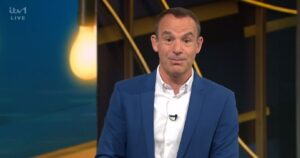
The VAT hike in private school fees that comes into effect today will increase the bills charged to parents by more than predicted by Labour, according to a new analysis.
At the same time, it is claimed the money raised through the measure will not be as high as expected to fund improvements in state schools, including the recruitment of thousands of new teachers.
The decision to add VAT at 20 percent has been highly controversial with claims that a number of private schools could be forced to close their doors while parents would be forced to switch tens of thousands of children into the state sector.
Education Secretary Bridget Phillipson insists that the measure has the support of the majority of middle class families who insist the cash is necessary to support the 94 percent of youngsters who attend state schools.
An impact assessment published by the Treasury in October suggested the tax rise would lead to an average increase of 10 percent in fees as the private schools would try to offset at least some of the cost.
However, analysis by the Telegraph puts the average increase at a higher 14 percent as they seek to protect their budgets while also spending cash on the staff and facilities that parents demand.
The publication analysed the increase in day fees between the autumn and forthcoming spring terms at 964 private schools across Great Britain. It said the 14 per cent increase is equivalent to an extra £2,600 a year for day pupil fees, taking them up to an average of £21,800 a year.
For boarding pupils, the increase would be worth £6,200 a year, based on the current average annual fees from the Independent Schools Council, which represents 1,200 private schools.
Some of the UK’s most prestigious schools have raised fees by the maximum 20 percent. At Eton College, which is reportedly sitting on reserves of around £560 million, boarding fees have increased from £17,583 to £21,100 per term.
Since 2022-23, the school’s annualised fees have increased 37 percent, from £46,296 to £63,300.
Harrow and Marlborough have passed on 15 percent to parents, putting both schools’ annualised fees at around £60,000 – around 1.7 times the national average household income.
The rises come on top of several years of high increases, driven primarily by inflationary pressures. Telegraph analysis shows that between the 2022-23 academic year and January 2025, average private school fees have increased by 29 percent.
The Treasury had expected 3,000 children in total to leave private schools across the 2024-25 academic year because of the VAT raid.
But an industry survey of private schools revealed that, between June and September alone, some 5,500 pupils had either applied to join a state school or given notice that they would leave come January.
The VAT fees change is estimated to raise £1.7 billion a year. Labour previously said the tax raid would help fund 6,500 “expert” teachers in state schools – equivalent to one new teacher for every three schools – mental health support for pupils and increased work experience and careers advice.
However, a report has found that the VAT raid would not raise enough funds to cover the cost of hiring the teachers which is estimated to run up to five billion pounds a year, according to research from the National Foundation for Educational Research, first cited by The Times.
On Tuesday, Julie Robinson, the chief executive of the Independent Schools Council, predicted that an exodus from private schools is coming. She said: “In enacting this policy, the Government has done wilful damage to education that will have none of the benefits promised by ministers.
“Thousands of children will have their education disrupted due to this unprecedented tax on education, exacerbating the crisis in special educational needs and disabilities support, limiting options for families of faith and imperiling world-class arts education.
“Parents are already opting out in greater numbers than predicted, and more will follow. As schools close and the money promised does not materialise, we hope the Government reflects and reverses their decision, choosing instead to focus on how all schools can work together for the benefit of 100 per cent of the nation’s children.”
Labour Cabinet ministers have defended the policy, with Rachel Reeves, the Chancellor, saying: “It’s time things are done differently.
“Ending the VAT break for private schools means an additional £1.7 billion a year that can go towards our state schools, where 94 per cent of this country’s children are educated. That means more teachers, higher standards, and the best chance in life for all our children as we deliver on our Plan for Change.”
Bridget Phillipson, the Education Secretary, said: “High and rising standards cannot just be for families who can afford them, and we must build an education system where every child can achieve and thrive.”


















